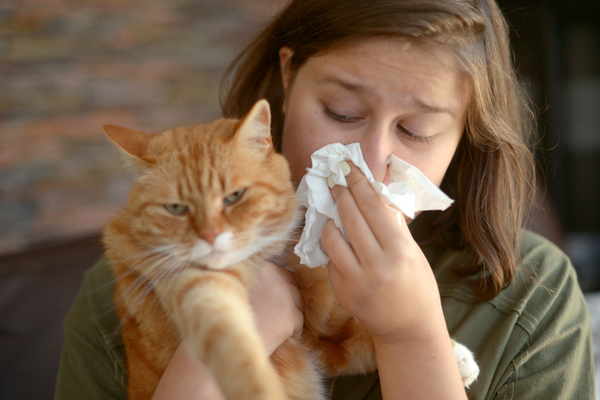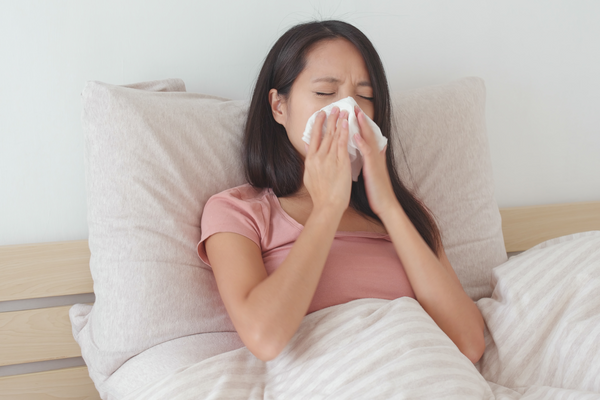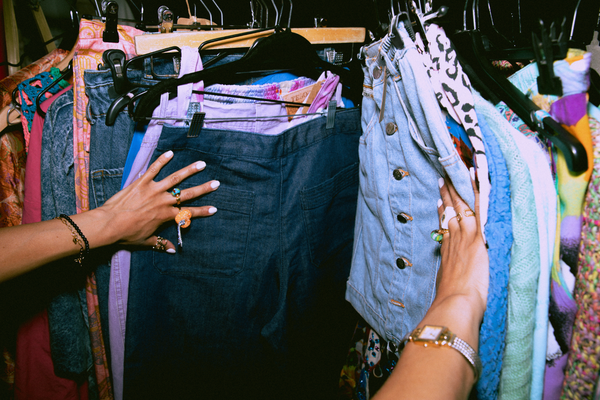30 Ways to Make Your Home More Eco-Friendly

Our sea level is rising at an increasing rate, and the weather is now consistently out of whack (just take a look outside). The effects of climate change are becoming more evident every year, and it’s clear that living a greener lifestyle is now more important than ever. This is why we, at The Ecology Works, are constantly striving to make our products more sustainable; demonstrated by the 100% solar-powered manufacturing plant that produces our Anti-Allergen Pet Shampoo in recycled PET bottles and the 100% biodegradable plant and mineral-based formulas of our Anti-Allergen Laundry Detergent and Anti-Allergen Solution. However, there’s still a lot of work to do – and we all must join forces to do better for our planet. Climate change might seem like an insurmountable situation, but there actually is something you can do, and from the comfort of your home, no less. A lot of things, actually. They don't have to take up all your time or money, either. Sure, you could install solar panels or invest in a new selection of Energy Star Appliances, but we recommend starting smaller.

Here are 30 impactful things you can do tonight, tomorrow, or this weekend to make your home a more eco-friendly place and reduce your overall carbon footprint, to help ensure a healthy planet for future generations.
1. Swap in some energy efficient light bulbs. Yes, it's tempting to buy those cheap incandescent bulbs at the grocery store, but this $21 six-pack of LEDs will last 13 years each (based on three hours of use per day).
2. Plant a simple backyard garden. It’s good to remember where our food originates, and it doesn’t have to be huge or complicated. Even if you live in an apartment, you can still garden! Indoor herb gardens are perfect for apartment living, plus, fresh herbs elevate any recipe.
3. Create a homemade compost bin. We know what you’re thinking. Erase that gnarly picture of compost that has formed in your mind! Composting can be neat and tidy and even smell-free. Try stashing scraps in a bag in your freezer, or in a sleek countertop bin designed for the purpose, and watch your trash loads get way smaller. Plus, it’s free fertilizer for your new garden!
4. Upgrade to a smart thermostat. Sure, your rickety old manual one works just fine, but a smart thermostat will do handy things like automatically drop the temperature when you're not home.
5. Say no to single-use shopping bags. In the United States alone, about one hundred billion plastic shopping bags are used each year. That’s an average of 1,500 plastic shopping bags per American family per year from shopping trips. Instead, opt for reusable jute (or hessian) tote bags – and remember to actually bring them inside the store with you. When a jute bag comes to the end of its life, add it to the compost heap, where it will eventually break down. Alternatively, you can recycle it with textiles to maximize usage.
6. Turn off the lights when you leave the room. And the ceiling fans, too.
7. Try to remember to always unplug unused chargers and appliances. Saving a little electricity here and there goes a long way.
8. Turn down your water heater. The standard setting for a residential water heater is 140º F, but that's extremely hot. To test: Turn on the hot tap but not the cold tap in your shower. Is it scalding? Too hot to touch? Try turning the heater down to 120º F so that the hottest it gets is your ideal shower temp.
9. Avoid buying bottled water. Generally, tap water is safe and healthy to drink, as long as you use the right water filter at home. In fact, bottled water is not as safe as you might think it is. Numerous studies have shown that most water in plastic bottles contain microparticles of plastic, which are harmful for you and for the environment. When absorbed by the body, microplastics can release chemicals straight into your body cells. It’s better for you and the planet to opt for a reusable water bottle.
10. Save paper by paying your bills online. Bonus: this will also save you time and probably some sanity, too.
11. Go a step further and save paper by putting a stop to unsolicited mail. Sign up to opt out of prescreened credit card offers here.
12. Wash laundry in cold water instead of hot. Did you know that about 90% of the energy used by the washing machine during laundry goes towards heating the water? Using cold water to wash your clothes eliminates this extra energy, making your clothes and the planet happy! Most conventional laundry detergents only get the job done in hot water, but our plant and mineral-based Anti-Allergen Laundry Detergent was designed to work well in cold water. Plus, it’s free from harsh chemicals like optical brighteners and synthetic fragrance – and it’s also100% biodegradable, making it an environmentally-friendly choice.
13. Try line drying your laundry. Line drying has so many perks: it reduces your energy consumption (saving you money and lowering your carbon footprint), helps your clothing and linens last longer by eliminating some wear and tear on the fabric, and gives your fabrics that natural, fresh outdoor smell (no need to use artificial, chemical fragrances). Of course, line drying depends upon the weather. But even if you don’t hang every wash load, each time you do, you save yourself money and help to protect the environment.
14. Support your local economy. A good first step? Try shopping at your local farmer’s market.
15. Use more rags, fewer paper towels. We're not saying no paper towels - that move takes serious commitment - we're saying fewer. Invest in a set of microfiber cloths (they’re great for catching dust) or simply cut up some old shirts to make cleaning rags (just like grandma did!) and toss them in the washer after use.
16. While you’re at it, give cloth napkins a try. Pro tip: Dark colors are easier to keep clean, and the bigger the napkin, the happier you'll be with it on your lap. Plus, you'll also feel pretty darn fancy using them even when you're just eating a grilled cheese.
17. Research whether you can sign up for local renewable energy from your utility company. It’s good for the planet and your wallet.
18. Fill your dishwasher all the way before running it. And if you really can't wait, run it on that "top rack only" setting that so many of them have these days, instead of doing a full cycle just for three wine glasses.
19. Or, set your dishwasher to run in the wee hours. Why would you want your dishwasher to run in the middle of the night? Hear us out. Have you ever noticed that "delay" button on your dishwasher and wondered why you'd ever want to use it? Well, if you set it to start during your electric company's "off-peak hours" (usually the middle of the night), you'll be reducing peak energy demand on the grid. And possibly getting charged less.
20. Fix any leaky faucets. We don’t need to elaborate on why this is wasteful!
21. Feeling energetic? Bypass the elevator. If you live in an apartment building, take the stairs occasionally. It’ll save electricity and you’ll get a workout in. It’s a win-win.
22. Level up your cleaning game. Say goodbye to chlorine beach, ammonia-based cleaners, wasteful disposable disinfectant wipes, and other harsh, toxic cleaning formulas that are bad for your family and the planet. Vital Oxide will replace all of your current household cleaners and disinfectants with one product designed to enhance your environment – without any harsh fumes, harmful residues, or VOCs. It’s gentle enough to sanitize food contact surfaces without having to rinse, and powerful enough to kill a wide range of viruses and bacteria, including SARS-CoV-2, the coronavirus that causes the disease COVID-19. Use Vital Oxide in the bathroom, kitchen, baby’s nursery, in the car, on the go, or anywhere, really. After use, Vital Oxide breaks down into simple salt, making it an Earth-friendly choice.
23. Shop pre-loved or vintage. Next time you decide to upgrade a piece of furniture, peruse sites like Facebook Marketplace, OfferUp, or your local thrift store. You’ll get a new (pre-loved) piece and you’ll keep one less item from heading to the landfill.
24. Reuse scrap paper. Even in this digital age, it’s incredible how much paper we use. Going forward, consider printing on both sides of the paper, or let your kids color on the backside of used scrap paper.
25. Eat local. Support restaurants that use food sourced from local farms, and learn more about the benefits of eating locally.
26. Collect rainwater. Use it to water your houseplants and garden.
27. Quit using the oven to make toast. Heating up your whole oven for two pieces of bread is . . . not efficient. Use a toaster instead (and remember to unplug it when you’re not using it).
28. Make coffee at home. Skip the single-use cup, cup sleeve, plastic lid, and plastic cup stopper from the coffee shop and make delicious coffee at home. No, you don’t need to go buy a $300 machine. A basic French press will do the trick and will usually cost less than $20. You can continue supporting your favorite small independent coffee shop by purchasing their locally roasted beans. And when you do pop in for a latte, remember to bring your reusable coffee cup!
29. Repurpose glass jars as leftover containers and bulk storage. This is especially handy in the kitchen, but glass jars are also useful for bathroom storage, garage organization, and in the craft room. According to the Environmental Protection Agency (EPA) only about 31% of glass is actually recycled in the U.S. each year, so by reusing your jars, there’s a good chance you’ll be keeping them out of a landfill.
30. Learn! Spend a weekend watching nature documentaries to learn more about the ever-changing health of our natural environment. A few must-see docs are: Our Planet, Chasing Coral, Kiss the Ground, and David Attenborough: A Life on Our Planet.
Have questions about our eco-friendly products? We have answers! The Ecology Works has been leading the way in green cleaning since 1993. We can help you select the products you need to live a better, allergen-free life. Please feel free to Contact Us or message us on Facebook. No question is too small! We’re here to help.





